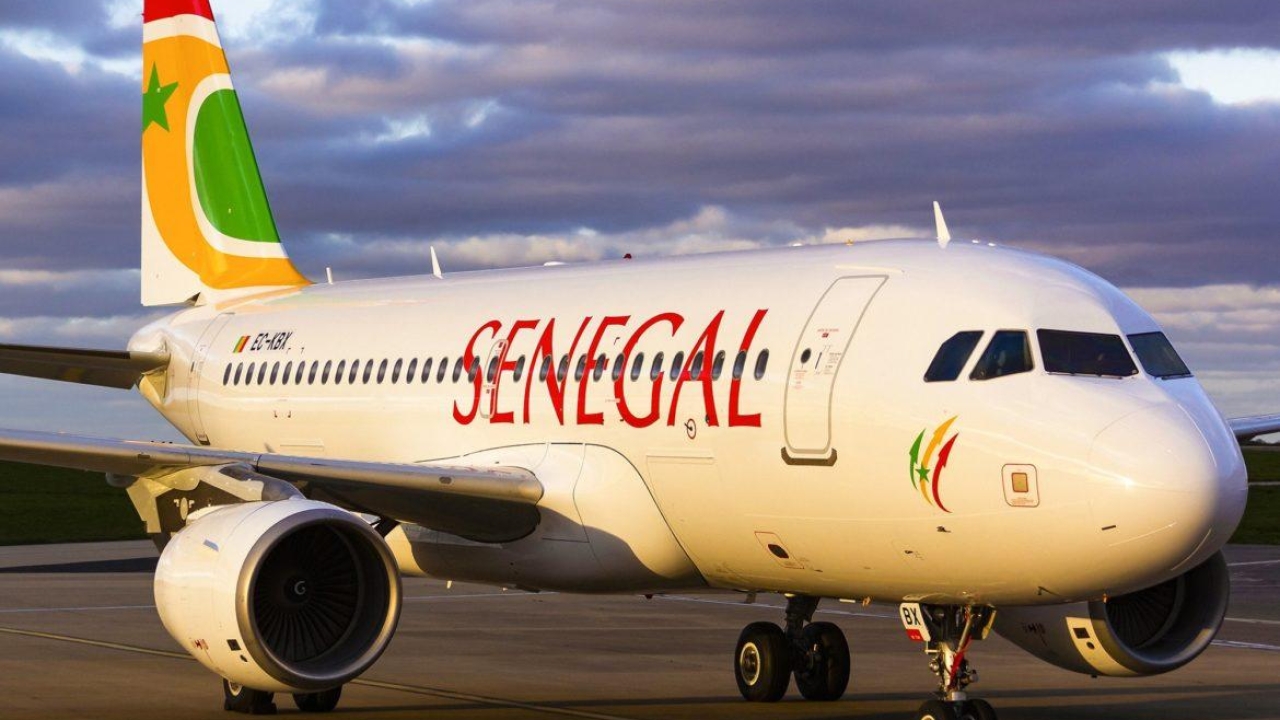Gambiaj.com – (DAKAR, Senegal) – Air Sénégal is once again facing a significant legal challenge. Two Irish companies, Sasof III Aviation Ireland DAC and Aergen Aircraft Twenty Limited — both Special Purpose Vehicles (SPVs) linked to U.S.-based lessor Carlyle Aviation Partners — have filed an urgent request with the Commercial Court of Dakar seeking the immediate return of four aircraft currently operated by the national carrier.
This development was first reported by the daily newspaper Libération and has since been echoed by several local media outlets.
The aircraft in question include two Airbus A319-100s (registered 6V-AMA and 6V-AMB), leased in 2018 and 2019, respectively, and two A321-200s (6V-AMC and 6V-AMD), which joined the fleet in 2020 and 2021.
According to the lessors, the lease agreements were terminated in August 2024 due to payment defaults. Around that same time, Carlyle Aviation secured a U.S. court order grounding five aircraft, including the four now at the center of this legal dispute, over debts reportedly totaling about USD 10 million.
In their petition to the Dakar court, the companies are demanding the immediate cessation of operations involving these aircraft, their return under penalty, and the payment of several billion CFA francs in outstanding lease fees.
Libération further reports that attempts to enforce these orders at Blaise Diagne International Airport (AIBD) were obstructed when an Air Sénégal station manager allegedly refused to accept the court bailiff, thereby denying access to restricted technical areas.
“This is a significant development for Air Senegal,” said Mamadou Ndiaye, an independent aviation analyst based in Dakar. “Aircraft leasing disputes can disrupt operations and have financial implications for an airline already operating in a challenging market.”
This legal battle comes at a particularly sensitive time for Air Sénégal. In April 2025, an interministerial meeting chaired by Prime Minister Ousmane Sonko led to the adoption of an emergency rescue plan for the airline, whose debts are reportedly over 118 billion CFA francs (approximately USD 200 million). The airline’s cumulative losses for 2022 and 2023 alone are estimated at 146 billion CFA francs.
The rescue plan includes a substantial injection of public funds, a comprehensive audit, a network restructuring, and the launch of a new domestic subsidiary, Air Sénégal Express. However, according to several observers, these reforms have been slow to take shape, and the airline’s financial difficulties continue to mount.
Beyond the four aircraft in dispute, Air Sénégal’s active fleet currently includes an ATR 72-600 — primarily serving routes to Cap Skirring and Praia (Cape Verde)—and an A330neo for long-haul operations. If the contested aircraft are withdrawn, the carrier’s regional operations could face severe disruption.
Air Senegal, the country’s flag carrier, has not yet released a public statement addressing the legal claims. Efforts to reach airline representatives for comment have so far been unsuccessful.
This escalating legal pressure only adds to the uncertainty surrounding the future of an airline the Senegalese government still sees as a key pillar of national sovereignty, tourism, and regional economic integration.










